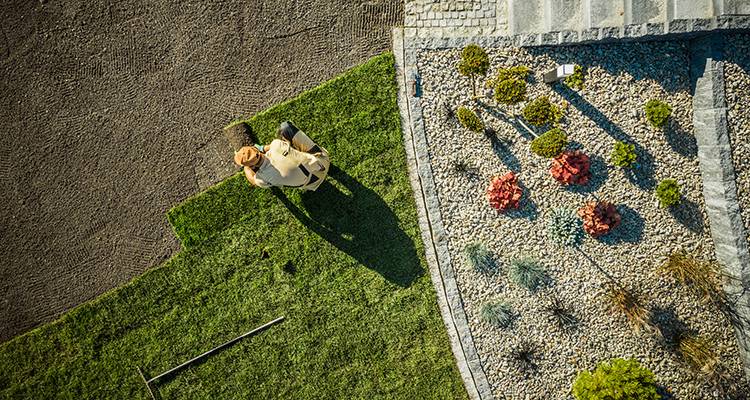Pouring Concrete Cost
- The average cost of pouring concrete per m³ is £90.
- It takes roughly 1 to 7 days to complete.
- A full breakdown of concrete costs per m³, featuring a range of concrete grades for different building uses.
- What's involved in pouring concrete, and if it's a job you can take on as a DIY task.
- How to find and hire concrete pouring professionals near you.
Want to know the cost of pouring concrete?
In this concrete price guide, we'll look at concrete costs per m³, from grade C8 to C40, as well as the labour costs for hiring a concrete specialist to pour concrete.
Ready to get a quote for your concrete pouring project?
Get in touch with concrete specialists near you with MyJobQuote for a free, no-obligation quote.
Want to find out more about poured concrete costs first?
Keep reading to find out everything you need to know!

£90 per m³
Table of Contents
- How Much Does It Cost to Pour Concrete?
- Concrete Costs (Supply Only)
- Concrete Pouring Labour Costs and Timescales
- Additional Concrete Pouring Costs
- What Impacts Concrete Pouring Costs?
- What's Involved in Pouring Concrete?
- Can I Pour Concrete Myself?
- Building Regulations and Planning Permission for Pouring Concrete
- Types of Concrete
- Checklist: How To Hire a Concrete Specialist to Pour Concrete in the UK
- FAQs
- Sources
How Much Does It Cost to Pour Concrete?
How much does concrete cost?
The cost of laying concrete is calculated per cubic metre (m³) rather than per square foot (m²). Cubic metres calculate volume, while square metres measure area.
Because concrete is a three-dimensional material consisting of length, width, and depth, concrete is measured in cubic metres, so the full depth of an area is accounted for.
So, what is the concrete pouring cost per cubic metre?
Pouring concrete costs between £80 and £90 per m³ for C8, C10, and C15 grades. You should consider paying between £90 and £95 per m³ for grades C20/C25.
For concrete grades C30/C35, the typical cost per m³ is between £95 and £100. Concrete pouring costs £100 to £105 per m³ for grades C40/C45.
Since prepared concrete is purchased by volume, it is critical to understand your filling space. Concrete prices are determined by various factors, such as your location and the type of concrete you've purchased. However, it would help if you thought about paying between £65 and £85 per cubic metre.
The average cost of pouring a concrete driveway range between £600 and £8,000. The driveway's size or the concrete's quality is the most critical factor determining the total cost. The cost of concrete pouring increases with driveway size and concrete quality.
How much would it cost to just prepare an existing concrete floor (so roughing up and priming) for a traditional sand and cement screed? Area approx eighty square metres.
Pouring Concrete Prices
| Concrete Strength | Uses | Cost Per Cubic Metre (m³) |
|---|---|---|
| C8/C10/C15 | Light domestic projects | £85 – £95 |
| C20 | Standard domestic project | £90 – £100 |
| C25 | Light domestic building | £100 – £105 |
| C30 | Medium domestic buildings | £95 – £110 |
| C35 | Commercial building | £100 – £115 |
| C40 | Heavy commercial building | £100 – £120 |
| Dry screed | Level current concrete | £130 |
| Waterproof concrete | Below groundwork | £190 |
| Self-level concrete | Repairs, levelling or raising current concrete | £200 |
Concrete Costs (Supply Only)
If you want to save money by DIYing a concrete base, you'll need to know what you will need to do the job correctly and safely. As a result, we will go over all you will need to install a concrete foundation in your home here.

First, determine how much concrete you will require for your concrete foundation. The cubic metre (m³) is the essential standard measurement for concrete.
Before you start, you'll need sand which costs £43 to £88 per bag, as well as cement which costs £4 to £15 per bag. You'll need to calculate how much you'll need to get the right volume of concrete for your project.
Alternatively, you can purchase ready-mixed concrete for £6 to £14 per bag, depending on how much you require.
You'll also need timber to support and brace the formwork while your poured concrete sets. It should be around 25mm thick, costing between £14 to £100 depending on how much you need.
To compact the poured concrete, you'll need a tamp board, costing between £150 to £300. Floor bearers will also be required to give a temporary working platform while the concrete is poured, costing £4 to £30 each.
To mix the concrete, you'll need a cement mixer. If you're buying this outright, it'll cost around £200 to £350. Alternatively, you can hire a cement mixer or a mixing board, costing £13 to £20.
In terms of tools, you'll need:
- Tape Measure - £2 to £10
- Pegs - £6 to £20
- String - £1 to £4
- Spirit Level - £3 to £40
- Hammer - £30 to £33
- Spade - £7 to £25
- Set Square - £3 to £37
- Earth Rammer - £20 to £40
- Wheelbarrow - £14 to £50
Concrete Pouring Labour Costs and Timescales
Pouring concrete is best done by a professional because it can be a challenging DIY task. As a result, you should know how much labour you should expect to pay when hiring someone. As a result, we'll go over the labour cost for pouring concrete here.

Pouring concrete could cost between £40 and £50 per m². This may vary depending on the complexity of the job and the time required to pour the concrete. The labour cost will range between £220 and £450 per day.
Other concrete pouring jobs would have a different total cost, including a concrete driveway. However, the labour associated with installing a concrete driveway is one of the most noticeable costs. On average, tradespeople charge £40 to £50 per square metre.
However, some driveway installers may charge an hourly rate that varies depending on the area in the UK. A tradesperson in London, for example, would charge around £45 per hour, whilst pricing in northern England is much lower, at just £25 per hour.
Because the task is labour-intensive and, based on the required depth of foundations, may be dangerous to complete alone, expect a team of tradesmen to be on-site to complete it.
As a result, you should get an idea that the length of the driveway has a huge impact on the duration required to finish the job.
Here are the timeframes associated with plain concrete pouring:
- A 5.25m² driveway will usually take 1 to 2 days.
- A 12m² driveway will take 2 to 3 days.
- A 25m² driveway will take 3 to 4 days.
While coloured or imprinted concrete will take:
- A 60m² coloured or imprinted concrete driveway will take 5 to 6 days.
- A 100m² coloured or embedded driveway will take 7 to 8 days.
Regular concrete takes one to two days to set based on the environment in which it is placed. Concrete takes approximately 25 to 28 days to reach full strength.
Additional Concrete Pouring Costs
Concrete prices vary greatly based on a range of factors, including the concrete's value, the site's location, the duration to complete, the needed concrete mix design, and the volume of concrete required.
Concrete Driveway
A concrete drive is a great place to park your car to keep it off the street and an excellent way to transform your home. It improves your property's first impressions and can even increase its value. In addition, private parking is handy if you live in a congested area.

However, driveways are not inexpensive. A concrete driveway is currently the most popular type of driveway in the UK today, as it looks great and is available in a variety of styles.
They are one of the most affordable driveway construction options, which is advantageous when building a new driveway. Concrete driveway installation costs range between £600 and £8,000, determined by the size and tone of driveway you want.
Concrete Shed Base
Homeowners are always looking for ways to improve their storage solutions - and adding in a new garden shed can be a great way of achieving that.
To ensure your belongings are kept in the best condition possible, you can opt for a concrete shed base. Concrete is incredibly durable, lasting for years without much maintenance, and it won't warp, rot, or be impacted by moisture like traditional timber sheds might - keeping your items safe and dry.
The cost of concrete shed bases depends on the size of the shed, but roughly costs around £100 per m³ of poured concrete.
Garden Wall
Several factors influence the cost of constructing a stone wall in your yard. The two most important factors are the size of the wall and the type of bricks used. For example, a small 5m x 1.2m wall made of machine-made bricks can cost as little as £530 - however, if you buy handmade or reclaimed bricks, the same size wall can cost £1,100.
In general, building a garden brick wall costs between £70 and £120 per m². However, walls with two brick skins will cost significantly more.
Garden Fence
The fence installation or replacement cost is determined by two primary factors: the amount of fence that needs to be replaced, and the type of fencing chosen. For example, if you only need a small section of fence, such as down one end of your garden, the installation will cost around £500 to £700 and take about a day. This would result in a 6-foot-tall fence in the most popular style.

If you need to adjust the fence from around the entire perimeter of your garden and want a more modern look, replacing garden fencing costs could range between £2,000 and £3,000.
Garden Landscaping Cost
Sprucing up your garden can be a great way of improving your outdoor space to enjoy during the warmer months - and there's a lot you can choose to do considering garden landscaping, depending on your budget.
For example, if you want to employ a landscaper to lay turf, the average cost of laying turf would be £260 to £300 for a 20m² area and £650 to £750 for a 50m² area. For something more low-maintenance, artificial grass costs around £1,300 to £1,600 for a 20m² area and up to £3,250 to £4,000 for a 50m² area.
Installing decking in your garden can transform the land, giving a flat surface to host from and sit back and enjoy the warmer nights. Decking costs around £600 to £750 for a six-metre square, or £1,000 to £1,250 for a ten-square-metre area.
For green-fingered enthusiasts, a raised vegetable bed might be of interest. For this, you can consider paying £120 to £520 for a 4m² area. If you'd prefer something for aquatic creatures, you can consider installing a garden pond for £260 to £530 for a one square metre pond.
When it comes to updating a patio, the cost of laying patio is around £360 to £480 for a 4m² area, or £800 to £1,200 for a 10m² area.
The landscaping cost can be influenced by the size of a garden, easy accessibility, and where you live. Property location is essential because landscapers charge different levels in different country regions.
What Impacts Concrete Pouring Costs?
Other factors that affect the cost of pouring concrete also include the amount of concrete required, the accessibility of the task, and whether the process will take longer to complete.
For example, pouring concrete in rain may be more difficult and will likely take longer to complete. In addition, because tradespeople frequently start charging by the hour, the level of difficulty will influence the cost.
Let's take a look at the main factors:
Minimum Charge
In some cases, labourers can set their minimum charge. This could be in the form of a specific minimum charge applied to your total cost - however, it may apply as an extension of an existing fee in certain circumstances.
Location
Because labour rates for hiring builders vary, your location has a significant cost impact. Labour rates, for example, are higher in the southeast, particularly in London, than in the rest of the UK, whereas the reverse is true in Scotland, Northern Ireland, and the north of England.
Job Duration
The longer the job takes, the more labour costs you will have to pay. For example, if labour is charged per day, you will be charged three days of labour, whether the work took two days or three or six hours. If an exact price is provided beforehand, the labour cost is not related to time.
Concrete Quantity
As you might expect, the more concrete you require, the more you'll pay since the company or labourers must spend more money on tools. So, if you want to save money, avoid using ample space for your concrete pour.
What's Involved in Pouring Concrete?
Each concrete placement is distinct. Everyone has unique demands, and the location of each property necessitates its planning. However, the same general steps are performed each time. This section will go over the steps involved in pouring concrete.

1. Preparation
The first job on every site is to clear and clean it, requiring earth-moving equipment. Any grass, trees, old concrete, or other debris must be removed so that the tradespeople can perform on the earth.
After clearing and labelling the exact size of the concrete, the entire area is covered with a granular subbase. The subbase is then compacted to prepare it for concrete.
2. Formation
Setting concrete forms is the next step. Forms are placed along the perimeter of the concrete area and secured with metal or wood stakes. Both the stakes and the forms are designed to be easily removed once the concrete has hardened.
3. Pouring Positioning
When the final forms are in place, the concrete can be installed. A ready-mix concrete truck may be able to drive directly to the job site and pour directly into the forms.
A concrete pump will transport the concrete to its destination if this is not doable. To avoid air pockets and ensure an even surface, the concrete will be levelled down and moved as it is poured.
4. Pre-Finishing
The top of the concrete should then be levelled, and the edges should be uniform. Next, the surface is screened, which means that a large board is slowly pushed across it to compact the concrete. Then, smaller areas or edges are evened out using hand-held trowels known as floats.
5. Completion
Finish the concrete now that the surface has been prepared. This is the stage at which you choose the surface of your pouring concrete.
6. Treatment
The concrete can now rest and begin the curing process. Again, compounding immediately after finishing is recommended because it helps the concrete set evenly and reduces cracks. In either case, the entire curing process takes 28 days, and the first week is crucial.
Can I Pour Concrete Myself?
Pouring concrete DIY necessitates far more skill and knowledge than other home projects.
Not Being Adequately Prepared
The most common problem that do-it-yourselves face when pouring concrete is a lack of thorough preparation. Getting the shovel out and clearing a spot is only the beginning of the process. Everything depends on how ready that area is to receive a tonne of concrete.
Inexperienced DIYers overlook many things, such as failing to use a plate compression machine to pack the soil, not levelling the area adequately, or setting up proper forms - the blocking that enables a smooth, even pour. Pouring concrete property entails several steps.
Not Having the Appropriate Amount of Concrete
Another mistake that people make when pouring a concrete patio is underplaying the thickness of the slab. Any concrete patio should have a minimum thickness of 4 inches to ensure safety.
However, if it will support heavy furniture or features, a thickness of 6 to 8 inches may be required. This is about a 2 to 3-inch layer of sand, gravel, or limestone.
Finally, you get only one pour. Order a little more than needed to be on the safe side. You can always return any extra bags you have.
You Don't Know What Kind of Concrete You Need
Concrete comes in literally thousands of different varieties. So, what type are you going to use to pour your patio? Isn't it all the same? Not at all.
You can get some fast and easy cement, low-heat cement, or sulphate-resistant cement. On the other hand, is it better to use blast furnace slag, high oxide, or air-entraining?
Failure to Create Appropriate Forms
A concrete form is a wooden frame into which liquid concrete can be poured. These aspects must be strong enough to keep the wet concrete in the area in the proper shape until it dries and hardens completely.
To prevent concrete from leaking out, forms must have watertight joints. In addition, they must be rigid enough to prevent the concrete from bowing outward. The quality of its formwork determines a concrete slab's performance.
What would the cost be to have a concrete slab laid that is 10 x 13 feet?
Building Regulations and Planning Permission for Pouring Concrete
If you are considering installing a concrete floor for the first time, either as a home improvement project or as part of your job, you must be aware of the applicable Building Regulations. The requirements for concrete floor construction listed in the Building Regulations are detailed below.

If a new or replacement driveway is using permeable (or porous) surfacing that allows water to drain through, including gravel, permeable concrete block paving, or porous asphalt, or if rainwater is guided to a lawn or border to drain naturally, you will not need planning permission.
However, if the area to be covered exceeds five square metres, planning permission will be required for traditional, impassable driveways that do not allow water to run to a permeable area.
A layer of screed made of sand and cement is applied over the top of the concrete to ensure a level finish to follow the building regulations. In addition, thermal insulation and a suitable gauge damp-proof membrane (DPM) must be provided. These can be laid on the concrete or over the sand blinding.
The damp-proof path in the external walls and, if applicable, the internal walls all-around floor should be lapped with the DPM. The thickness of the different floor parts will be determined by the ground conditions or the order they have been laid.
If the existing building has air bricks, for example, to ventilate existing floor voids, ducting should be installed to allow air to pass through the solid floor and then into the void beneath the existing house. The new wall is then filled with air bricks.
Types of Concrete
When it comes to pouring concrete, there are various types of tasks that you should consider. In this section, we will go over the various types of concrete pouring jobs that you should consider.
Concrete Driveway Costs
A concrete driveway could cost between £348 to £1,968 to install. Several factors influence the cost of building a concrete driveway, including the size of the driveway, the type of concrete used, the ease of access, and whether base preparations are required.

A one-car concrete driveway usually takes one to two days to build, a two-car concrete driveway takes two to three days, and a three-car concrete driveway takes up to four days. If you need foundations or prefer patterned or pressed concrete, the project might take anywhere between 1 to 5 weeks to complete.
Flat concrete driveways are easy to make in design and are typically made of water and a lime-based binder that retains stone clumps together. This driveway can cost as little as £108 for a one-car driveway and £600 for a three-car driveway, not including installation.
Flat concrete is made up of the same materials as pressed or patterned concrete. However, it is made by pushing a pattern into wet concrete. A pressed or patterned concrete driveway could cost £162 and £768.
Pros
✔ Increases the value of a home
✔ One-of-a-kind designs
Cons
✖ Expensive
Concrete Floor Costs
Polished concrete floors are frequently misinterpreted as being cold and slick. However, these floors can be polished to make them non-slip and pleasant to walk barefoot. These floors can also cater to underfloor heating in the colder months, creating a lovely, warm feeling.
A new polished concrete floor typically costs between £120 and £150 per m². This is because it will take time to pour, finish, and seal the concrete. However, if you have a concrete floor and want it polished, the price is much lower, around £50 to £55 per m².
Installing a new garage floor can significantly improve the look of your garage. Polished concrete is an excellent choice for garage floors because it is long-lasting and flexible—polished concrete flooring costs between £2,000 and £2,500.
Selecting a polished concrete floor for your restroom is an excellent way to transform the space's appearance completely. The finished bathroom will have a modern or industrial feel and a high-end appearance—a polished concrete bathroom floor costs between £300 and £400.
Pros
✔ Durable
✔ It can be used with underfloor heating
✔ Various design options
Cons
✖ Expensive
I'm looking for tips to make sure our installation of a polished concrete floor in the kitchen goes well. What are the main dos and don'ts?
Concrete Slab Pouring
Concrete slabs are used in construction as they provide a flat, horizontal surface. The most popular applications include floors, ceilings, or roof decks. In addition, a concrete slab is used on top of the foundations in many domestic buildings to provide a solid ground floor.

The cost of pouring a concrete slab is usually between £65 and £85 per m³. However, like other types of concrete pouring, the cost of concrete pouring will vary depending on the strength of the concrete used, the size or scale of the project, and where you live in the country.
Pros
✔ Simple to do
✔ Long-lasting
Cons
✖ Raises the floor level
✖ Requires a lot of maintenance
Checklist: How To Hire a Concrete Specialist to Pour Concrete in the UK
If you want to start a project that may require a concrete contractor, hiring the correct one for the job is essential. However, it can be challenging to find a dependable concrete contractor who completes the job on time, provides excellent work, and communicates with you.
The following suggestions on finding a decent concrete contractor will make the entire process much more manageable.
- Ask questions and select a contractor comfortable dealing with technical issues. You should also look for someone willing to explain the process to you so you know what to expect.
- Seek recommendations from friends and family, and use MyJobQuote to find local concrete specialists.
- Gather at least 3 different quotes from reputable contractors to compare prices.
- Ensure you get a written quote from your contractor, with an itemised breakdown of all costs so there are no hidden fees - if everything is in writing, you can ensure everything runs smoothly and goes as planned.
- When creating a contract, consider the work schedule, materials needed, payment, and who can clean up the job site after the project is completed.
FAQs
When Can You Wet Concrete after Pouring?
CCan You Pour Concrete in the Rain?
How Deep Should I Dig for a Concrete Slab?
Can I Pour Concrete on Top of the Grass?
Can I Pour Concrete over Two Days?
Sources
https://www.planningportal.co.uk/permission/common-projects/extensions/building-regulations-flooring
https://randmconcrete.com/concrete-pouring-process/
https://randmconcrete.com/pouring-concrete-patio-what-could-go-wrong-with-doing-it-yourself/
https://esub.com/blog/9-tips-how-to-find-a-good-concrete-contractor/









